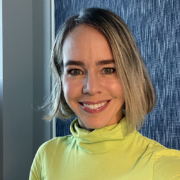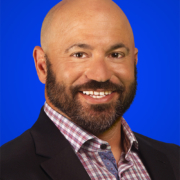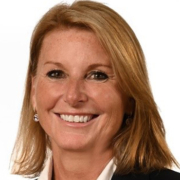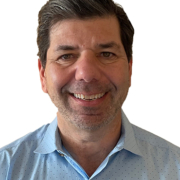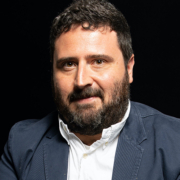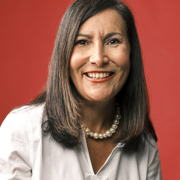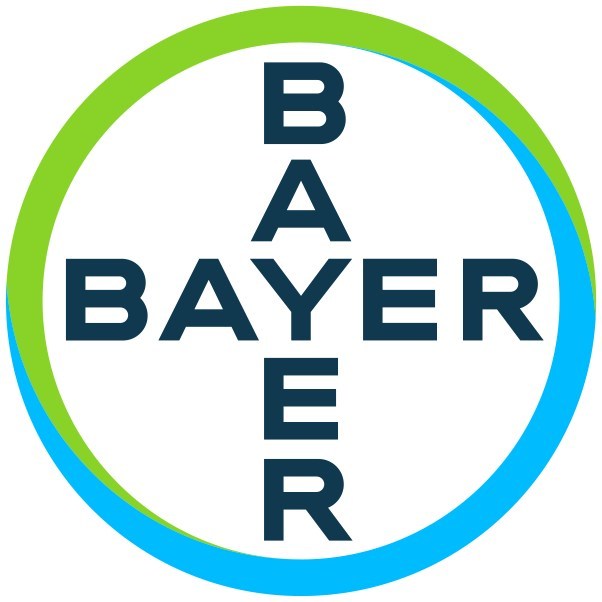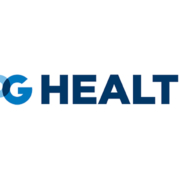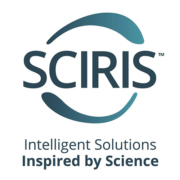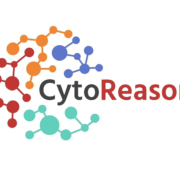Healthcare Agency Roundtable 2023: Moving into 2024
Healthcare Agency Roundtable 2023: Moving into 2024
By Maria Fontanazza • [email protected]
What excites you looking ahead to 2024?
Robin Shapiro, CEO, TBWA\WorldHealth: 2024 is a year that will be defined by two words: health impact. We’re on a mission to make an undeniable measurable impact in health. And now it’s more possible than ever before. Creativity, data, and AI are synergistic forces, and we use them to ensure that every idea, every message, every program we create is built to make a positive impact — business impact and human impact. They are not mutually exclusive; they are inextricably linked. Our client’s objectives are our own. Doing well plus doing good. We choose both. We are excited for the year to come.
Brenda Aske, Chief Strategy Officer, Biolumina: We’re seeing a big shift in what influences the perception of value of an anticancer treatment. Patients are asking for — and healthcare professionals are celebrating the advent of — more choices that go beyond disease control to offer alignment with individual needs. Patients are seeking more autonomy of choice over what course they want to take to manage their disease, and what side effects they will tolerate, and are increasingly becoming active participants in the treatment-selection process. This translates to more conversations about chemo-free options, discussion about IV vs. oral therapies, daily medication vs. a one-time treatment like a CAR-T, and other choices. It’s more commonly accepted now to recognize that one size doesn’t fit all, and we’re fortunate to have different treatment options and therapeutic sequences that can empower individualized care across a range of cancer types.
Jennifer Matthews, Global CEO, The Bloc: In 2024, we will be continuing our expansion from a capabilities and geographic standpoint, including our growing medical communications and market access footprints. We will continue to build upon our BE-COMMS (behaviorally driven communications) foundation to ensure it drives the most effective solutions for our clients.
Angela Tenuta, President, EVERSANA INTOUCH: If 2023 has taught us anything it is just how resilient we can all be. It’s been a tough year across many geographies. Tough economic conditions. Instability in parts of the world leads to uncertainty. And yet I’m optimistic we’ll come out in 2024 stronger, with a better understanding of how newly emerged technology can help us be smarter, and allow us to continue our larger purpose, making the world better. We look forward to continuing to integrate the tremendous team from Healthware Group into our family. We’ve seen tons of new opportunities to bring our teams in to help clients with global work not only now but expanding that in 2024. And we look ahead to doubling down on our investments in technology and automation to help accelerate content creation and production of marketing assets across our teams. And finally, the interest in technology-driven solutions like AI-powered videos has never been stronger. This continuation of innovation maturation across healthcare and life sciences tops our list for 2024.
Italia Marr, Media Strategy Director, Greater Than One: When I think 2024, I get excited about patient engagement. Improved patient engagement is becoming a priority in healthcare marketing. As an agency, we are empowering clients to increase their focus on the DTC audience – patients and caregivers. With a DTC audience that’s now digital-first and using online resources to become their own health advocates, it’s our responsibility as health marketers to equip them with the right information, which means showing up where they’re looking for it. Strategies are audience dependent, though may include social media (I see TikTok being even bigger next year), email, point of care, patient portals and communities. I expect the patient engagement landscape will continue to evolve next year.
Ryan Slipakoff, Chief Transformation Officer, Klick Health: This is an exciting time for lifesciences companies to unlock maximum potential from their data and technology to make real business impact. Over the past decade, clients have made massive investments in data and technology as they’ve sought to internalize capability that was formerly done on their behalf by traditional and digital agencies. In that pursuit, they built powerful engines to drive organizational capability, but struggled to translate those centralized capabilities to brand level impact–which is obviously the source of their revenue and therefore the means to deliver ROI on those investments. We are seeing many major advancements, such as using AI across the entire continuum of healthcare commercialization and real-time, dynamic segmentation across personal and nonpersonal channels for truly orchestrated experiences, optimized for efficiency, and impact. Clients are seeing the impact of the gap between organizational infrastructure and brand adoption, utilization, and maximization. Lifescience companies are realizing they need to change their approach and partner strategy from project and business-unit-based, to a unified and simplified strategy and operations, evolving talent, planning, operating model, regulatory review process aimed at driving brand-level maximization and revenue generation.
Fred Kinch, Founder, Brick City Greenhouse: I’m hoping for a resurgence in the emerging/startup pharma and biotech space. VC funding in this area has really hit an all-time low over the last year and potentially exciting therapeutic areas and modalities are being left to whither. Off the top of my head, I know of at least three companies with promising assets in high, unmet need areas that are being shelved for lack of funding.
Claire Gillis, CEO, VMLY&R Health: Science is advancing at incredible speed, powering us towards new innovations that will change lives and transform health in ways that would have been unthinkable just a few years ago. The drug industry has slipped into another gear too. Analysts estimate we could see as many as 400 new product launches in the next three years as pharma companies make the most of breakthrough science. Historically, the FDA has approved an average of 34 novel drugs each year since 1993, although the rolling average of the last 5 years is 49. If we really do see 400 product launches by 2027, that’s a shift of epic proportions. It’s a reason to be excited for the future of health, because with every advance in medical science, the potential to change lives increases.
Perhaps the most exciting area of opportunity is oncology — the fastest growing sector of health care with a projected market volume of $188 billion. It’s growth with a human backstory: every three seconds, someone somewhere dies from cancer – that’s roughly every time you take a breath. Right now, there are more than 2,000 oncology products in development, as well as a growing number of game-changing new medicines that are already in-market or poised for introduction. The FDA approved 10 new cancer treatments in the third quarter of 2023 alone. That trend will not only continue and accelerate through 2024, bringing life-changing benefits for millions of people. Advances in cancer, though, are just one part of the story. If scientific progress was the only metric that mattered, there are reasons to be cheerful across all categories of health. But as always, it’s not that simple. Science is outpacing health systems and, in many areas, leaving humanity behind. Gaps in access and outcomes for low-income populations and ethnic minorities are widening. That’s a sobering reality and the ongoing challenge we must overcome.
Beyond medicine, two of the biggest tools we have to help address the challenge of health inequity are technology and communications. In the next 12 months we’ll see an explosive growth in generative AI and machine learning that can transform every aspect of healthcare. At the same time, advances in virtual care, digital therapeutics and wearable technologies will revolutionize where and how patients are treated. The consumerization of health will continue at speed, with patients, providers and payers increasingly connected via a digital marketplace, powered by personalization at scale. From an ad industry perspective, these advances are arguably our biggest area of opportunity, with success contingent on how we leverage AI, marketing technology and human-centric strategy to design personalized and connected health experiences. 2024 has the potential to be a game changing year for our sector. But health doesn’t exist in a vacuum. The next 12 months will see the U.S. and (most likely) the UK move towards national elections where health policy will feature prominently. Next year will, without question, be important. It’s also an opportunity. As guardians of the health narrative, we have a duty to ensure that the people we ultimately work on behalf of – diverse patient populations all over the world – have a voice in the debate. That’s an exciting opportunity, and one that we must not waste.
Cora Meese, Executive VP, Director of Growth and Account Services, Entrée Health: I think we’re all collectively excited about finally turning the corner on pull-through solutions that truly work. A market access data-powered platform that functions within existing field team workflow to give prescribers accurate coverage information is now a reality, and we’re starting to see it impact product adoption. Additionally, AI is ripe with potential across just about every touchpoint in the patient journey, and I look forward to helping clients navigate the smartest ways to put this tool to good use. While the 2024 election and ongoing regulatory changes can be anxiety-invoking, with all big changes come big opportunities – our team will have our eyes turned to the future, seeking new and interesting ways to help people get access to the healthcare they deserve.
Paul Hagopian, Chief Growth Officer, Fingerpaint Group: The further exploration and implementation of AI in healthcare marketing will dominate 2024. As AI continues to gain speed and acceptance, its impact will not only facilitate complex insights in narrower windows of discovery time, but it will also allow for more accurate forecasting of outcomes. With that said, AI is only as good as the people inputting the information and interpreting the results. The key to AI’s success in 2024 will be learning how to leverage both AI and human power to deliver unmatched results.
Jay Patel, Executive VP of Experience Strategy, Saatchi & Saatchi Wellness: I’m excited and anxious for the big cookie “crumble”. The loss of third-party cookies will force marketers into the most innovative era yet in terms of our approaches to personalization and targeting.
Richard Veal, Managing Director, GENICOS, powered by Syneos Health: In the field of oncology and advanced therapeutics, we are seeing the very real exploration and usage of artificial intelligence and multimodal approaches to earliest disease identification. Two examples come to mind that excite us looking ahead.
- Randomized AI trials and reducing underdiagnosed cancer: The Mayo Clinic, along with other healthcare leaders, is doing research and building empirical evidence of how AI and multimodal approaches to care can definitively reduce missed diagnoses. For example, human expertise misses approximately 15 percent of small polyps in GI exams where machine assistance misses only 3 percent. This is only the beginning of these types of human-plus-machine expertise improvements, and 2024 is poised to see continued evidence across many disease areas.
- The rise of qualified treatment centers (QTCs) for broader audiences: QTCs, carefully trained and certified institutions, are the key conduit for advanced therapies like autologous cellular therapy, radiopharmaceuticals, and other advanced therapeutics. As more of these therapies are approved, providers and industry are becoming ever more reliant on one another to get these novel treatments to patients. As qualified populations move from ultra-rare diseases to higher prevalence diseases, there is more opportunity for QTCs to streamline protocols and potentially engage community providers to deliver these services in years to come.
Derick Sumrall, Practice Lead, Customer Experience, Elevate Healthcare: Everyone is talking about AI, which went mainstream late last year. In 2016, we saw major news media organizations embrace the cost savings and efficiencies around automated journalism/AI-driven story generation. However, this learning phase was not without problems for the news industry, including a drop in writing quality, reputation, and job loss. Today, despite these challenges, there is a growing demand to integrate AI into everything in order to reduce labor costs and improve efficiency. AI is therefore now impacting many aspects of our daily lives, including mobile applications, cars, product R&D, marketing automation, and yes, healthcare marketing. The companies behind AI have tried to normalize this shift by giving the general public access to use it (e.g., ChatGPT), but with its widespread use, many of its imperfections are coming to light. Content bias, expertise, ownership, inconsistent data standards, privacy, and legality are only a few. For pharma marketers, as more AI is integrated into our industry for our specific needs, ongoing refinement will be needed as challenges emerge. For example, Google’s Generative AI Search Summaries have made Zero-Click Search a reality, and it has begun to impact how we connect with our audiences. The momentum behind AI is so fast that we have politicians, who never agree on anything, actually agreeing on the need for guardrails and government regulations on its proper use. You can never deny it’s good business to be cost-effective, but never at the expense of care.
Ross Quinn, Managing Director, Client Solutions, YuzuYello, an IPG Health Company: Reflecting on the past year, one monumental shift we have experienced has been the rapid expansion and adoption of AI. Patient support programs have historically leaned on a significant amount of manual process. We believe the human element continues to be foundational when it comes to healthcare services. That said, we can be faster, better and more efficient with AI. Looking ahead, we have an expanded toolkit to provide the support and services people need to stay on therapy. Barriers and drivers to adherence are multidimensional. If we can predict when individuals may drop-off treatment, we can customize services to overcome those barriers. That’s a game changer when it comes to driving better health outcomes.
Jesse Kates, Managing Director/Creative Lead, Neon, an IPG Health Company: The people and the work. It sounds cliché – maybe – but I that’s the honest answer. We’ve managed to grow significantly and preserve that intangible Neon thing that makes our agency so great to be a part of. I’m really excited about spending more time in person with everyone. Unsurprisingly, our incredible talent has some incredible work debuting in 2024 – the culmination of an enormous amount of heart, soul, creativity and collaboration this year. I can’t wait to celebrate these achievements and build on the momentum for what comes next.
Jill Beene, President, McCann Health New Jersey, an IPG Health Company: One of the greatest lessons we collectively learned during the COVID-19 pandemic was how to achieve greater adaptability in the face of uncertainty — navigating that uncertainty and being better prepared to respond to unforeseen challenges. Change is a necessary part of our industry — it keeps us thinking fresh and always looking for better solutions. I’m looking forward to seeing how we collectively lean in to solve problems this year with the benefit of our COVID learning behind us. How will we approach problem solving differently? How will we incorporate tech solutions, break down silos, build better relationships, seek change? In a way, 2024 marks the first time in a while we are going into a new year with a clean ‘COVID-free’ slate.
Jacob Harrison, Director, Ecommerce Investment Strategy, CMI Media Group: The opportunity to create an omnichannel network in conjunction with major retailers to deliver pharma products to underserved communities. Between technology advancement, new advertising capabilities, and advancements in the supply chain, I look forward to being able to properly articulate the benefits of our clients’ products, transparently charging the consumer, and delivering products to them in an efficient manner on a consistent basis.
Toby Katcher, Video Investment, CMI Media Group: The continued adoption of CTV and streaming and integrating cohesively with other marketing channels like social, digital, and email tactics to deliver a unified and personalized message and experience for HCPs and consumers. Cohesive approaches not only enhance brand recognition but also allows for a more tailored approach via messaging and educational content that can be consumed seamlessly, contributing to a more effective communication, informed decision making, and improved patient care.
Egbavwe Pela, SVP, Media, CMI Media Group: I am most excited about the opportunity to do omnichannel and the ability to scale. For years we’ve been building to this point where the technology and data are readily available and structured in such a way where this is a reality. The ability to creatively use data to truly deliver personalized experiences will be key for growth and success across marketing campaigns.
Daniel Winter, VP, Product Strategy, CMI Media Group: 2024 will be officially the cookieless year. That will be a real disruption into how some channels will be used for media activation and measurement. An omnichannel approach will be needed for this next year to understand all channels as part of an integrated ecosystem to assist healthcare professions, patients, and caregivers to have access to the best information to make informed decisions about their health journey or their loved ones.
Lauren Cohen, Managing Director/Creative Lead, Humancare, an IPG Health Company: Like a lot of people, I’m excited about the potential of AI. But since AI is inherently derivative, I’m not as interested in what it can create itself, but rather in how it will affect the quality of work as it gets more and more naturally integrated into the creative workflow. We’re already starting to see it – as tools get more powerful and teams get more comfortable using them, they’ll be able to spend less time comping and more time thinking, developing, and improving ideas. The rules and technology seem to change daily, so I think we’ll soon see even more opportunities to use AI to produce concepts that would have taken too much time or money to execute otherwise. Healthcare creative is already among the most innovative work out there, and I think AI is just going to turbocharge that.
Amar Urhekar, Chief Operating Officer, Avalere Health: The environment is challenging for emerging biotech, but this presents an opportunity to innovate. It has been a difficult year for biotech, which is still grappling with the high cost of capital and a complex merger and acquisition environment. We’re also yet to see the full impact of Federal Trade Commission (FTC) regulatory changes and policy changes focused on maximizing competition and managing the price of therapies. Many biotech companies have responded by cutting earlier development programs and doubling down on their lead assets. While the market can be daunting, there is a significant opportunity for innovation and to think differently about how these assets are developed and commercialized. This means making the right decisions early on, from mapping the early asset investment strategy, to generating the right evidence, to navigating market access and regulatory complexity, to building a sustainable commercial and go-to-market model. We’re excited by the opportunity to support our biotech clients across the product lifecycle to make the decisions that matter, bringing innovative products to market in a more sustainable way and ensuring patients can access life-enhancing treatments and technologies faster.
A deeper understanding of the implications of the changing policy landscape is vital for successful commercialization. We’re looking forward to helping our clients navigate policy changes, especially related to IRA implementation issues such as Medicare price negotiation and Part D redesign. These changes will impact a wide array of stakeholders, including patients, providers, payers, healthcare professionals, and investors. As such, it is important to leverage large databases of claims data, along with insights into stakeholder groups to understand the near-future and long-term implications of these changes. Manufacturers will need to revisit their decision-making, evidence-generation and HEOR plans, lifecycle planning, and commercial strategy to succeed in these environments. Understanding and being able to pivot in the wake of these legislative changes is not just important for mitigating risk, it’s also key for developing pipelines, products, and portfolios that succeed in complex environments in the long term.
Rory Leslie, Executive VP, PMO Team Lead, Ogilvy Health: I’m excited by future-forward operating models that ensure we stay ahead of the needs of a changing world. Today’s agency landscape requires a nimble and innovative approach to delivery and operations, the ability to understand and apply emerging technologies, and tailored solutions for each client. With the proliferation of AI in areas like content, image, and video generation over the past year, agencies have an opportunity to adopt new tools and find new solutions for delivery, allowing us to focus even more on providing value to clients through strategic problem solving. Clients are thinking differently about their businesses, and so are we.
Kim Johnson, Global CEO, Ogilvy Health: Today, health is at the center of culture and it’s an exciting time to leverage creativity, technology, and experience to unlock a healthier world. We see increasing numbers of consumers and patients determined to take greater control of their own well-being, taking matters into their own hands, quite literally, with an increase in self-monitoring through wearables and in-home connectivity to health metrics, education, and care. This, along with ongoing advancements in personalized medicine, will allow for greater involvement in how healthcare is both planned and delivered. I’m excited about the evolution of primary care in the U.S. with community and digital focus, hopeful of more accessible and affordable points of care. These signal some beneficial health trends for society. Each year presents the opportunity to work with health disruptors and innovators tackling the greatest health and wellbeing challenges of our time – I feel very fortunate to be a part of this work. Bring on 2024!
Healthcare Agency Roundtable 2023: Pressing issues in the election year (Part I)
Healthcare Agency Roundtable 2023: Representation in healthcare marketing (Part II)
Healthcare Agency Roundtable 2023: Artificial intelligence for the foreseeable future (Part III)
Healthcare Agency Roundtable 2023: Cutting through the social noise (Part IV)
Healthcare Agency Roundtable 2023: A look ahead in market access (Part V)
| Maria Fontanazza is the director of content, Med Ad News and PharmaLive.com. |



